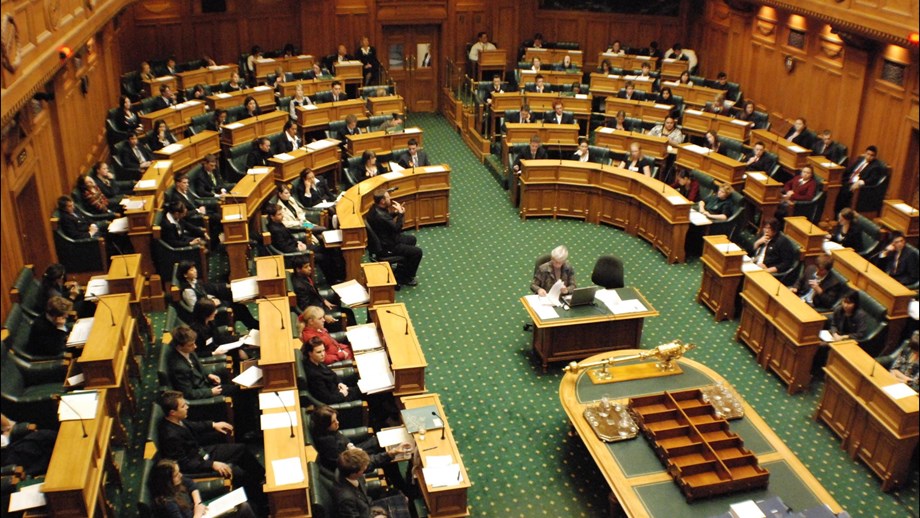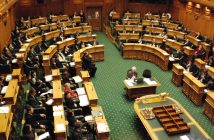More than 100 recommendations have been made to strengthen New Zealand’s democracy and the effectiveness of parliament, some of which have already been ruled out the current government – one that is still on the table is a four-year electoral cycle

When New Zealand moved to the MMP system in 1993, setting the number of seats in parliament to 120, its population was just over 3.5 million. Now over 5 million, the number of seats have not changed, but the recommendation to freeze the 60:40 ratio of electorate to list seats, thus allowing the number of seats in parliament to increase with New Zealand’s population, has already been rejected by Justice Minister Paul Goldsmith.
It is one of 117 recommendations that have come out of an independent electoral review which was commissioned by the previous government.
Lowering the voting age to 16, allowing all prisoners to vote and stand for Parliament, and repealing the offence of ‘treating’ voters with refreshments and entertainment are other recommendations already ruled out by Goldsmith.
One recommendation which does look likely to be considered is a four-year term. The government has already committed as part of the National-ACT coalition agreement to introducing the Constitution (Enabling a 4-Year Term) Amendment Bill, which if passed would be subject to a binding referendum.
What the review says
In New Zealand, the longest a parliament can run is three years from the return of the writs for the previous election. At the end of this three-year period, unless it has already been dissolved, parliament expires.
The length of the parliamentary term must balance two objectives:
- Effectiveness: allowing parliaments and governments enough time between elections to do their jobs. For governments, this means enough time to develop, consult on, and implement their policies. Parliaments, meanwhile, need time to scrutinise governments and examine legislation.
- Accountability: elections hold politicians accountable to the people they serve. The ballot box provides the ultimate accountability. The term of parliament needs to be short enough to provide this opportunity regularly, but long enough for the public to be able to understand and assess the performance of the government and Members of Parliament (MPs). This accountability also helps to maintain trust in public institutions and uphold the legitimacy of the democratic system.
The arguments between a three- or four-year term of parliament are finely balanced. There are legitimate concerns about whether the current three-year term is enough time for government, parliament, and MPs to be effective.
The arguments in favour of a four-year term – that it would improve the ability of parliament to scrutinise the government, produce better laws and more effective governments – were strong arguments, in line with the review’s objectives.
On the other hand, there is no certainty that a four-year term will deliver the promised benefits when compared to a three-year term. A longer term would allow more time to develop and make new laws but might not improve the law-making process. Also, in the absence of greater checks on how governments exercise power, more frequent elections help voters hold governments to account.
Some experts consider that the introduction of MMP has indeed shifted the balance of power between governments and parliament, increasing the ability of parliament to more effectively hold the government to account.
The recommendation
Holding a referendum on the term of parliament should be considered as one part of a package of recommendations.
Taken together, the recommendations aim to improve democracy in Aotearoa New Zealand. A greater gap between elections may be more acceptable to some people if other recommendations were adopted.
For example, the recommendation to lower the party vote threshold to 3.5 per cent will result in a more representative parliament.
The current party-vote threshold of five per cent is higher than it needs to be and lowering the threshold will broaden representation by making it easier for new parties to enter parliament, while still allowing for the formation of stable parliaments and effective governments. This recommendation could counter-balance less frequent elections.
Another recommendation to help level the playing field for newer parties is a setting a flat spending limit on advertising of $3.5 million for all parties, as well as a $30,000 cap on donations. Currently there are no restrictions on the amount that an individual may donate or loan to a party or candidate, and this risks enabling the exercise of undue influence through financial means.
Related to this is the recommendation that only individuals enrolled to vote should be able to make loans or donate to parties and candidates.








